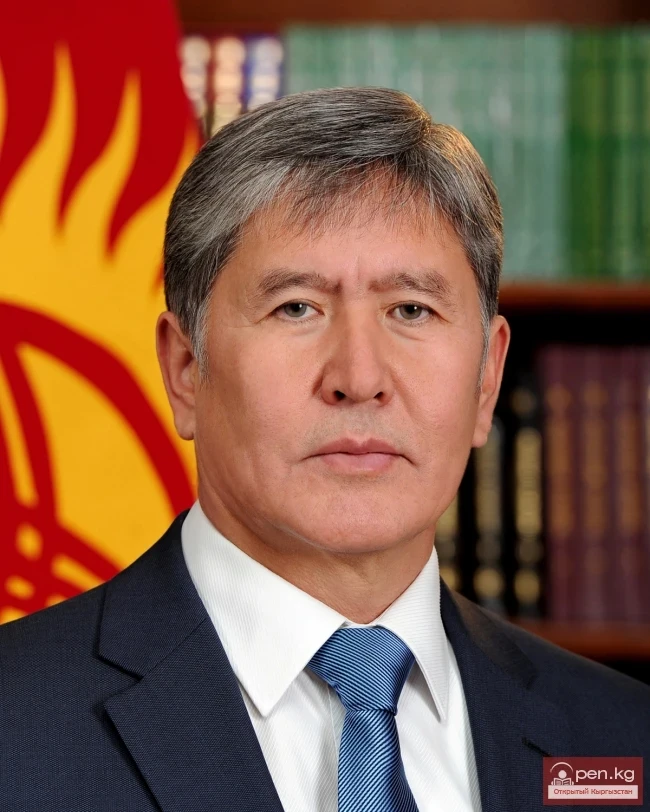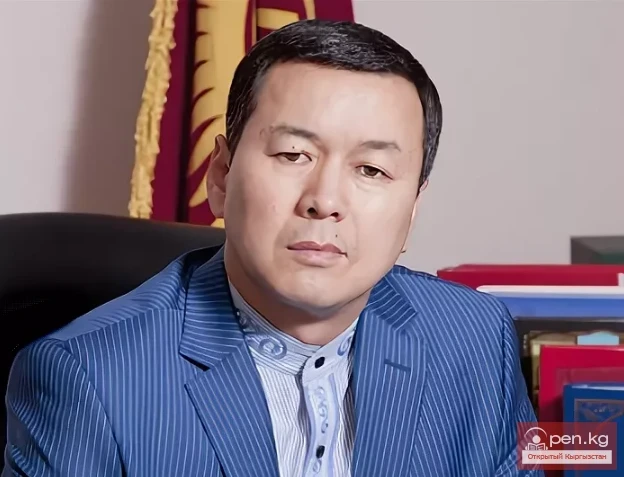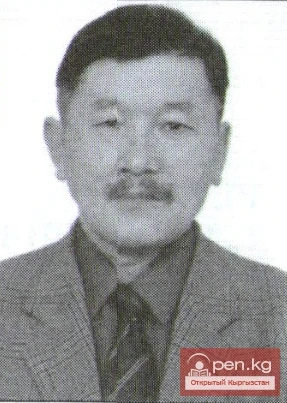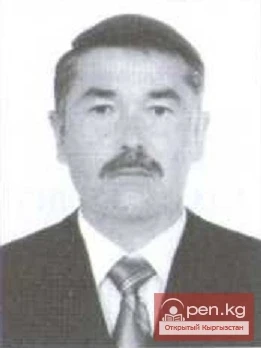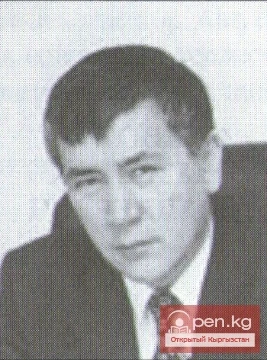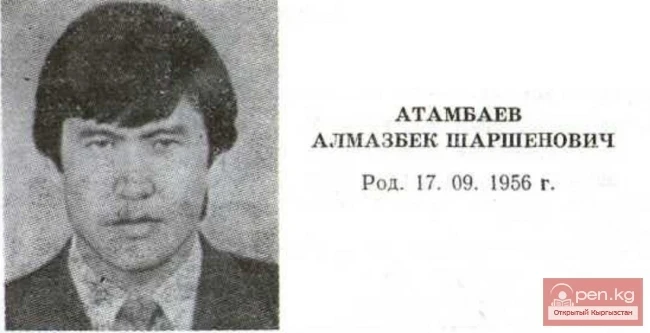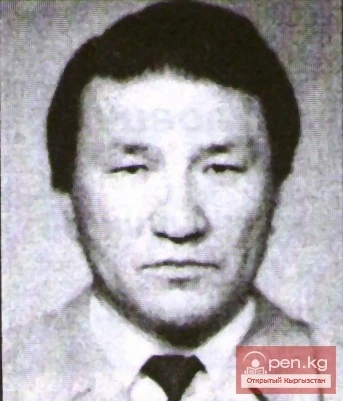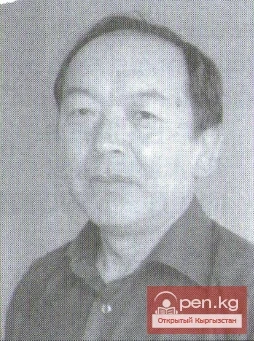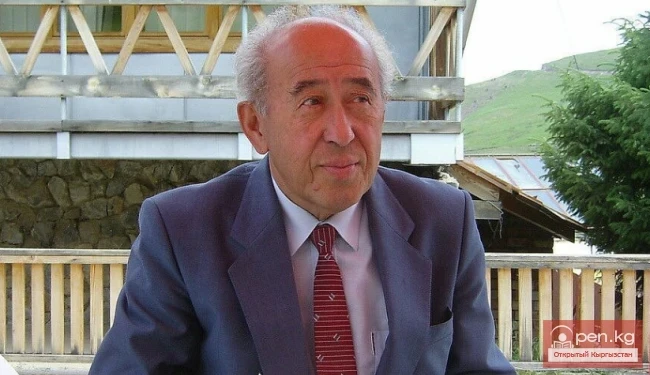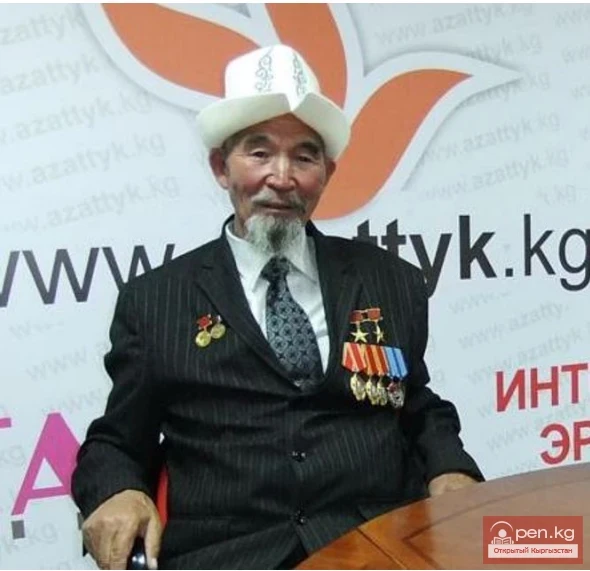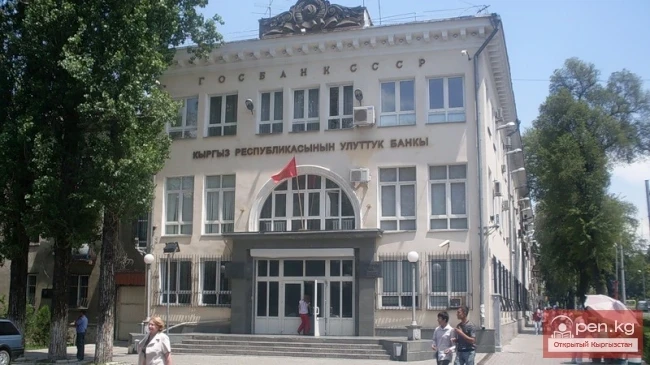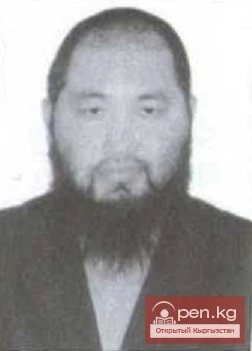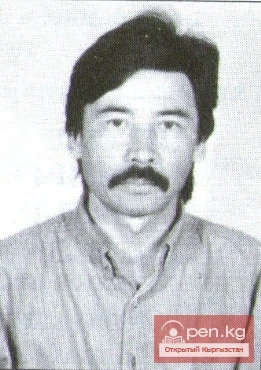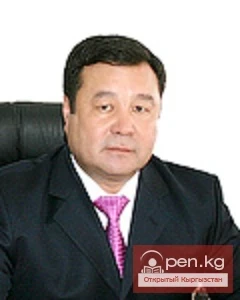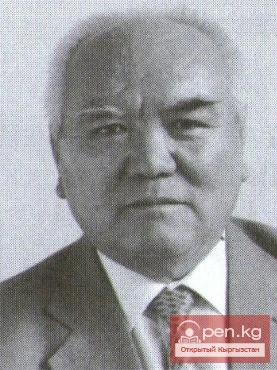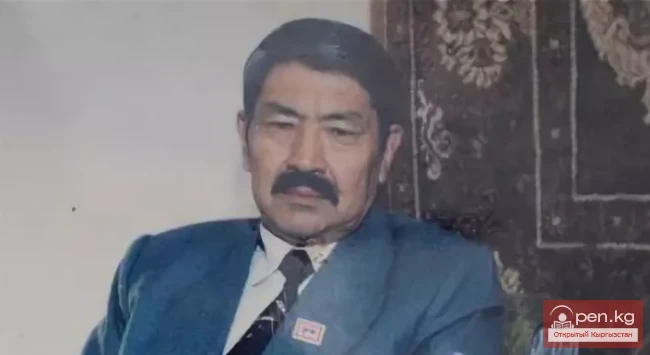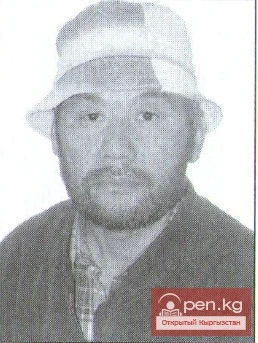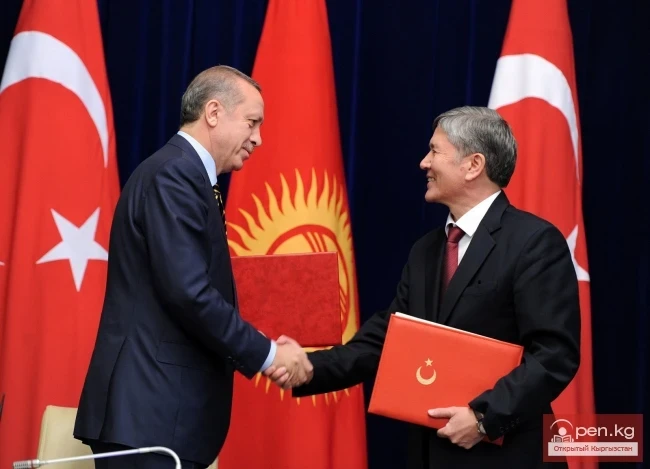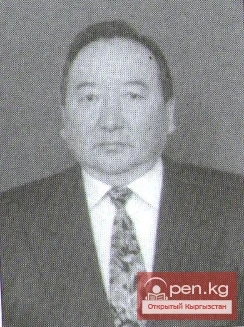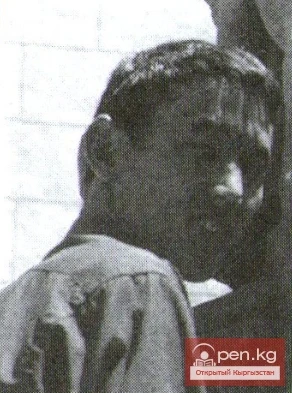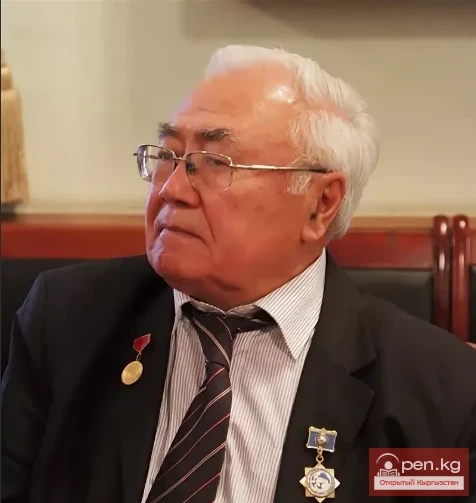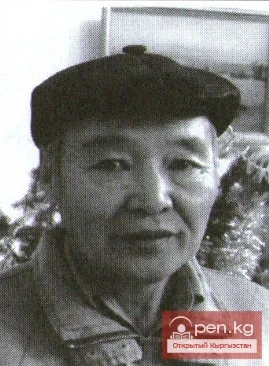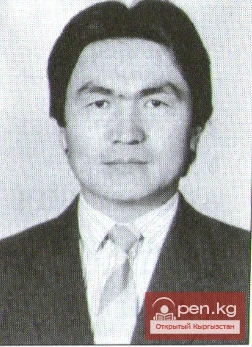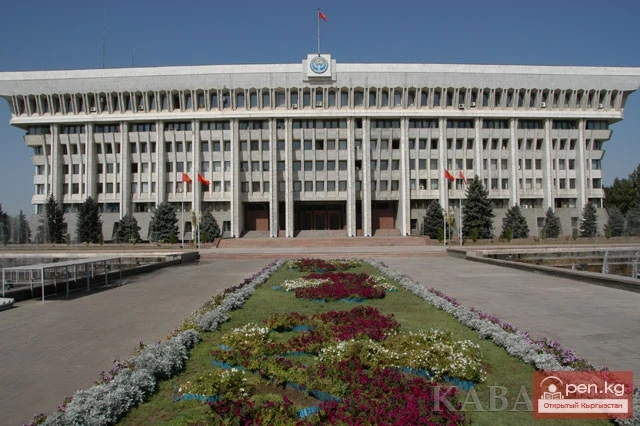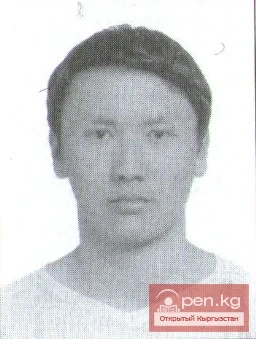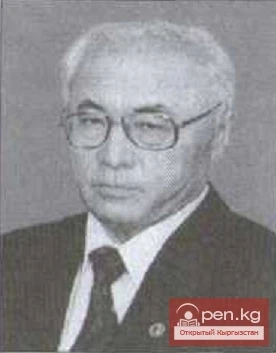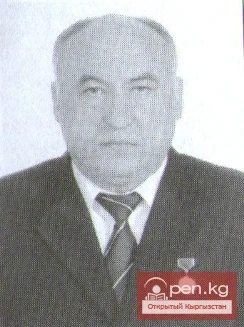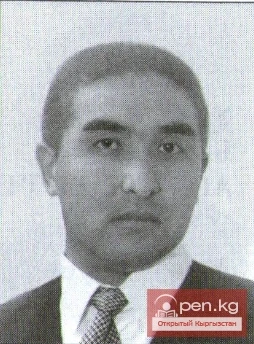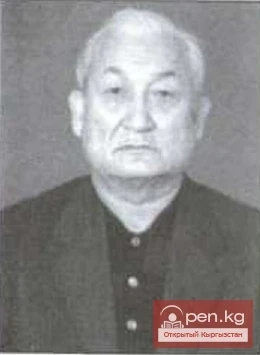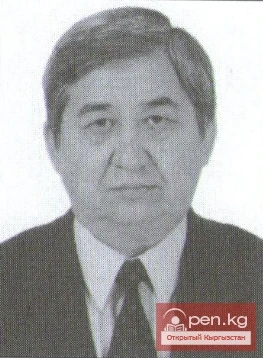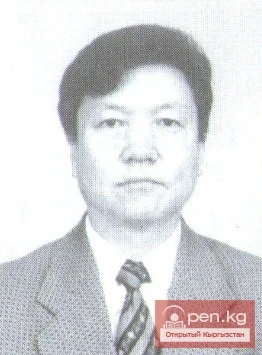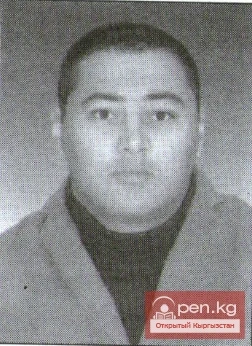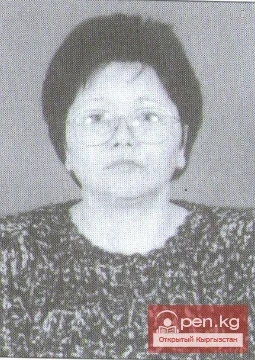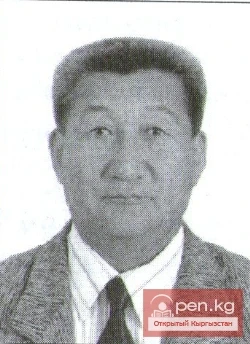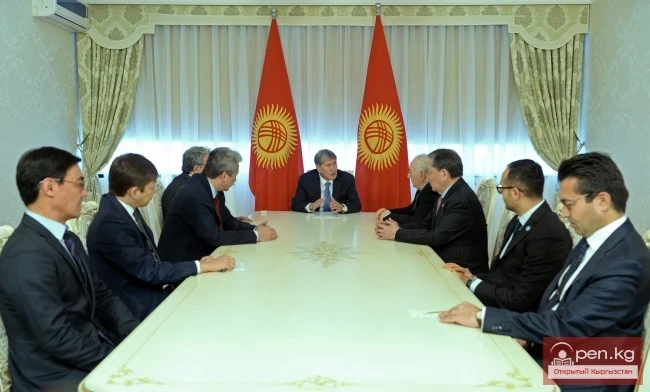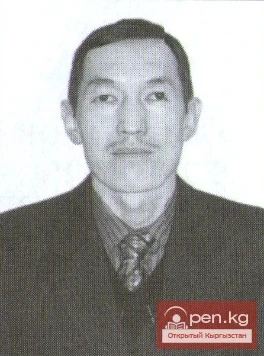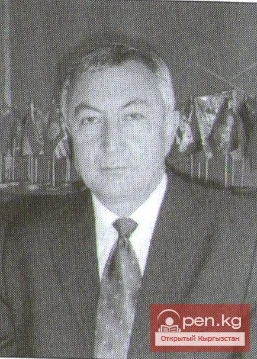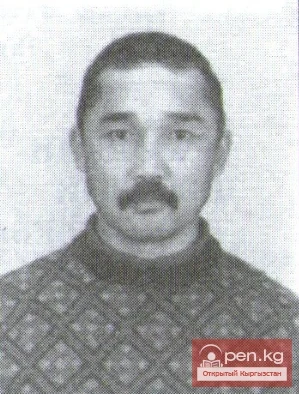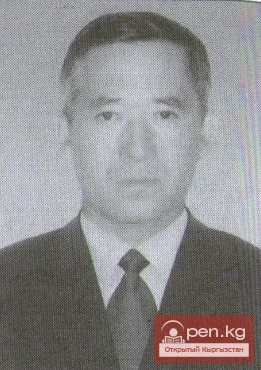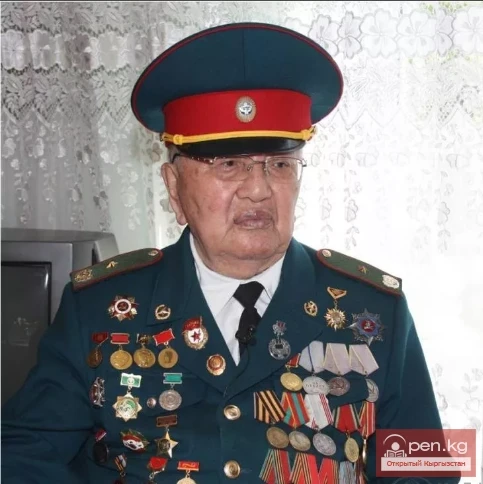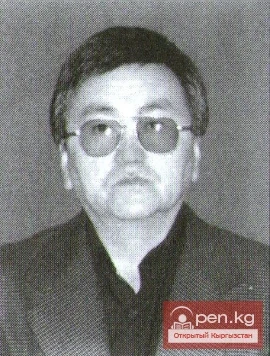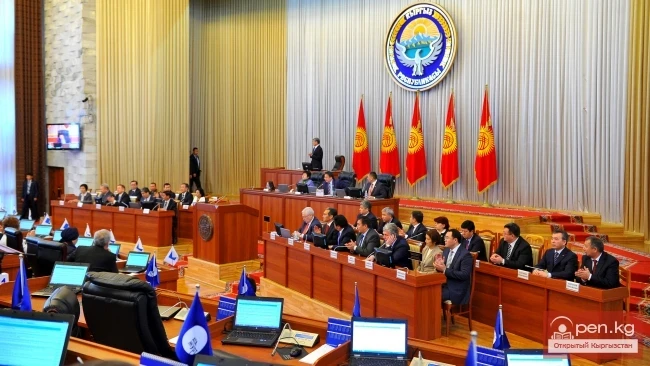Biography
ATAMBAEV Almazbek Sharshenovich was born on September 17, 1956, in the village of Arashan, Alamudun district, Chui region.
In 1980, he graduated from the Moscow Institute of Management with a degree in engineering economics, specializing in production management organization.
In 1999, he was awarded the "Dank" medal, and in 2007 - the "Danaker" order. He holds the rank of State Advisor of the 1st class in the state service.
He began his career in 1980 as an engineer at the Ministry of Communications of the Kyrgyz Republic.
From 1981 to 1983 - Chief Engineer of the Road Maintenance Department No. 4
From 1983 to 1987, he worked in various positions in the Presidium of the Supreme Council of the Kyrgyz SSR.
From 1987 to 1989 - Deputy Chairman of the First May District Executive Committee.
From 1989 to 1997 - Director of the Scientific and Production Firm "Forum".
From 1997 to 1999 - General Director of JSC "Kyrgyzavtomash".
From 1999 to 2004 - Chairman of the Board of Directors of the Industrial Group "Forum".
From 2004 to 2005 - Chairman of the Board of Directors of the Corporation "Kyrgyzavtomash".
From 2005 to 2006 - Acting Minister, Minister of Economic Development, Industry, and Trade of the Kyrgyz Republic.
From 2006 to 2007 - Prime Minister of the Kyrgyz Republic.
From 2007 to April 2010 - engaged in active public and political activities.
From April to June 2010 - First Deputy Chairman of the Interim Government of the Kyrgyz Republic.
November - December 2010 - Deputy of the Jogorku Kenesh of the Kyrgyz Republic, leader of the SDPK faction.
Since December 20, 2010 - Prime Minister of the Kyrgyz Republic.
On October 30, 2011, he was elected President of the Kyrgyz Republic.
On December 1, 2011, he officially took office as President of the Kyrgyz Republic.
From the Constitution of the Kyrgyz Republic
SECTION THREE
Article 60.
1. The President is the head of state.
2. The President embodies the unity of the people and state power.
Article 61.
1. The President is elected for a term of 6 years by the citizens of the Kyrgyz Republic.
2. The same person cannot be elected President twice.
Article 62.
1. A citizen of the Kyrgyz Republic who is at least 35 years old and not older than 70 years, who speaks the state language and has lived in the republic for at least 15 years, may be elected President.
2. The number of candidates for the presidency is not limited. A candidate for President may be registered if they collect at least 30,000 signatures from voters.
The procedure for the presidential elections is determined by constitutional law.
Article 63.
1. Upon taking office, the President takes an oath to the people of Kyrgyzstan.
2. The powers of the President cease upon the assumption of office by the newly elected President.
3. During the exercise of his powers, the President suspends his membership in a political party and ceases any actions related to the activities of political parties.
Article 64.
1. The President:
1) appoints elections to the Jogorku Kenesh in cases provided for by this Constitution; decides on the appointment of early elections to the Jogorku Kenesh in the manner and cases provided for by this Constitution;
2) appoints elections to local councils; in cases and in the manner provided by law, dissolves local councils.
2. The President:
1) signs and publishes laws; returns laws with objections to the Jogorku Kenesh;
2) has the right to convene an extraordinary session of the Jogorku Kenesh in necessary cases and determine the issues to be considered;
3) has the right to speak at sessions of the Jogorku Kenesh.
3. The President:
1) submits candidates to the Jogorku Kenesh for election to the positions of judges of the Supreme Court upon the proposal of the Council for the Selection of Judges;
2) submits to the Jogorku Kenesh for dismissal judges of the Supreme Court upon the proposal of the Council of Judges;
3) appoints judges of local courts upon the proposal of the Council for the Selection of Judges;
4) dismisses judges of local courts upon the proposal of the Council of Judges in cases provided for by constitutional law.
4. The President:
1) appoints the Prosecutor General with the consent of the Jogorku Kenesh; in cases provided for by law, dismisses the Prosecutor General with the consent of at least one-third of the total number of deputies of the Jogorku Kenesh or at the initiative of one-third of the total number of deputies of the Jogorku Kenesh, approved by two-thirds of the deputies of the Jogorku Kenesh; upon the proposal of the Prosecutor General, appoints and dismisses his deputies;
2) appoints and dismisses members of the Government - heads of state bodies responsible for defense, national security, and their deputies.
5. The President:
1) submits to the Jogorku Kenesh a candidate for election to the position of Chairman of the National Bank; upon the proposal of the Chairman of the National Bank, appoints deputy chairmen and members of the board of the National Bank, and in cases provided for by law, dismisses them;
2) submits to the Jogorku Kenesh for election and dismissal candidates for one-third of the members of the Central Commission for Elections and Referendums;
3) submits to the Jogorku Kenesh for election and dismissal candidates for one-third of the members of the Audit Chamber;
4) appoints the Chairman of the Audit Chamber from among the members of the Audit Chamber elected by the Jogorku Kenesh and dismisses him in cases provided for by law.
6. The President:
1) represents the Kyrgyz Republic within the country and abroad;
2) conducts negotiations and signs international treaties in agreement with the Prime Minister; has the right to delegate these powers to the Prime Minister, members of the Government, and other officials;
3) signs ratification certificates and certificates of accession;
4) appoints, in agreement with the Prime Minister, heads of diplomatic missions of the Kyrgyz Republic in foreign countries and permanent representatives in international organizations; recalls them; accepts credentials and revocations from the heads of diplomatic missions of foreign states.
7. The President decides on matters of granting citizenship and renouncing citizenship of the Kyrgyz Republic.
8. The President is the Commander-in-Chief of the Armed Forces of the Kyrgyz Republic, determines, appoints, and dismisses the senior command staff of the Armed Forces of the Kyrgyz Republic.
9. The President:
1) heads the Defense Council, established in accordance with the law;
2) in the presence of grounds provided for by constitutional law, warns of the possibility of declaring a state of emergency, and if necessary, declares it in certain areas without prior announcement, immediately notifying the Jogorku Kenesh;
3) declares general or partial mobilization; declares a state of war in the event of aggression or an immediate threat of aggression against the Kyrgyz Republic and immediately submits this issue to the Jogorku Kenesh for consideration;
4) declares martial law in the interests of protecting the country and the safety of its citizens and immediately submits this issue to the Jogorku Kenesh for consideration.
10. The President:
1) awards state honors of the Kyrgyz Republic;
2) confers honorary titles of the Kyrgyz Republic;
3) confers the highest military ranks, diplomatic ranks, and other special titles;
4) exercises the right of pardon;
5) determines the structure of his apparatus, approves its regulations, and appoints its head.
11. The President exercises other powers provided for by this Constitution.
Article 65.
The President exercises his powers by issuing decrees and orders that are mandatory for execution throughout the territory of the Kyrgyz Republic.
Article 66.
1. The powers of the President may be terminated prematurely in the event of resignation at his request, removal from office in the manner prescribed by this Constitution, as well as in the event of inability to exercise powers due to illness or in the event of his death.
2. In the event of the President's inability to perform his duties due to illness, the Jogorku Kenesh, based on the conclusion of a state medical commission established by him, decides on the premature release of the President from office by at least two-thirds of the votes of the total number of deputies of the Jogorku Kenesh.
Article 67.
1. The President may be held criminally liable after being removed from office.
2. The President may be removed from office only on the basis of an accusation brought by the Jogorku Kenesh of committing a crime, confirmed by the conclusion of the Prosecutor General regarding the presence of signs of a crime in the actions of the President.
3. The decision of the Jogorku Kenesh to bring an accusation against the President for removal from office must be adopted by a majority of the total number of deputies of the Jogorku Kenesh at the initiative of at least one-third of the total number of deputies and in the presence of a conclusion from a special commission established by the Jogorku Kenesh.
4. The decision of the Jogorku Kenesh to remove the President from office must be adopted by a majority of at least two-thirds of the votes of the total number of deputies of the Jogorku Kenesh no later than three months after the accusation against the President is brought. If the decision of the Jogorku Kenesh is not made within this period, the accusation is considered rejected.
Article 68.
1. In the event of the premature termination of the President's powers for the reasons specified in this Constitution, his powers shall be exercised until a new President is elected by the Speaker of the Jogorku Kenesh. In the event of the Speaker of the Jogorku Kenesh's inability to perform the President's duties, the Prime Minister shall exercise the powers of the President.
Early presidential elections shall be held within three months from the date of termination of the President's powers.
2. Officials exercising the powers of the President shall not have the right to appoint early elections to the Jogorku Kenesh or dismiss the Government.
Article 69.
1. All former presidents, except those removed from office in the manner prescribed by Article 67 of this Constitution, have the title of ex-president of the Kyrgyz Republic.
2. The status of ex-president is established by law.
Presidential Standard
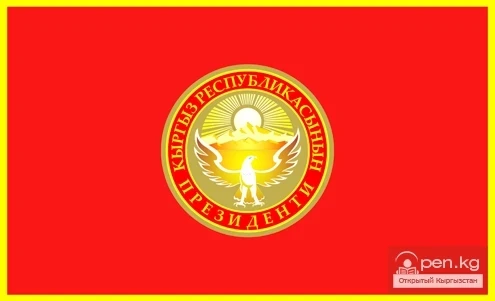
The Presidential Standard of the Kyrgyz Republic is a sign of distinction and a symbol of presidential power in the Kyrgyz Republic.
The Presidential Standard of the Kyrgyz Republic is presented upon the assumption of office by the President of the Kyrgyz Republic.
The original of the Presidential Standard of the Kyrgyz Republic is located in the official office at the residence of the President of the Kyrgyz Republic in the capital of the Kyrgyz Republic - the city of Bishkek.
A duplicate of the Presidential Standard of the Kyrgyz Republic is displayed next to the State Flag of the Kyrgyz Republic above the residence of the President of the Kyrgyz Republic in the capital of the republic, above other residences during the President's stay in them, and on the vehicles of the President of the Kyrgyz Republic.
At ceremonial and other events with the participation of the head of state, the duplicate of the Presidential Standard of the Kyrgyz Republic may be displayed next to the State Flag of the Kyrgyz Republic.
DESCRIPTION of the Presidential Standard of the Kyrgyz Republic
The Presidential Standard of the Kyrgyz Republic consists of a red cloth (the color of the State Flag of the Kyrgyz Republic), bordered with a golden ribbon 50 mm wide, and golden fringe. The width of the cloth is three-fifths of its length.
In the geometric center, there is a golden circle with a diameter of three-fifths of the width of the flag.
In the center of the golden circle is a stylized image of the State Emblem of the Kyrgyz Republic: an image of a white falcon with outstretched wings, placed in the center of a golden circle, with a background of a lake, the foothills of the Ala-Too mountains, and a rising sun with golden rays.
Around the circle is the inscription in gold "Кыргыз Республикасынын Президенти" (President of the Kyrgyz Republic). The size of the letters in the inscription is one-seventh of the diameter of the golden circle.
On the staff of the standard, there is a silver clasp engraved in the state language with the surname, name, and patronymic of the President of the Kyrgyz Republic and the dates indicating the term of his election.
The staff of the standard is topped with a golden finial in the shape of a spearhead.
Sign of the President
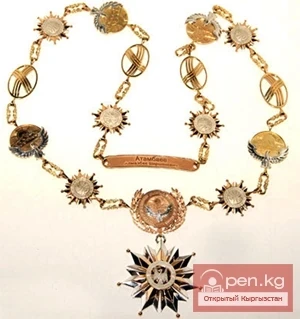
The Sign of the President of the Kyrgyz Republic is a sign of distinction and a symbol of presidential power in the Kyrgyz Republic.
The Sign of the President of the Kyrgyz Republic is presented upon the assumption of office by the President of the Kyrgyz Republic.
The location of the Sign of the President of the Kyrgyz Republic is in the official office at the residence of the President of the Kyrgyz Republic in the capital of the Kyrgyz Republic - the city of Bishkek.
DESCRIPTION of the Sign of the President of the Kyrgyz Republic
The symbol of presidential power - the Sign of the President of the Kyrgyz Republic consists of the sign and the chain of the sign.
The Sign of the President of the Kyrgyz Republic is made of 750/0 gold and consists of two elements:
- an ancient ornamental motif - Blessed Umai Ene - one of the most revered deities of the ancient Kyrgyz, her symbolic representation in the form of a soaring bird, soaring above the Universe;
- a unique citrine (weighing 105.2 carats, with a diameter of 35.5 mm) of golden color, symbolizing the integrity, indivisibility, and diversity of the peoples living in the Kyrgyz Republic.
The chain of the sign is made of gold and consists of repeating elements, part of which is made in the form of a tündük, while the other part consists of a symmetrical eight-pointed golden star, in the center of which is a large pearl, symbolizing the administrative divisions of the Kyrgyz Republic.
On the reverse side of the plate located at the top of the chain of the sign, the surname, name, and patronymic of the President of the Kyrgyz Republic are engraved in the state language along with the time of his assumption of office.
Oath of the President
"I, Atambaev Almazbek Sharshenovich, upon taking office as President of the Kyrgyz Republic, swear before God and my people to justly exercise the powers of the head of state, protect the rights of man and citizen, strictly adhere to the Constitution of the Kyrgyz Republic, and defend the unity of the people, the integrity and security of the state.".
President of the Kyrgyz Republic
